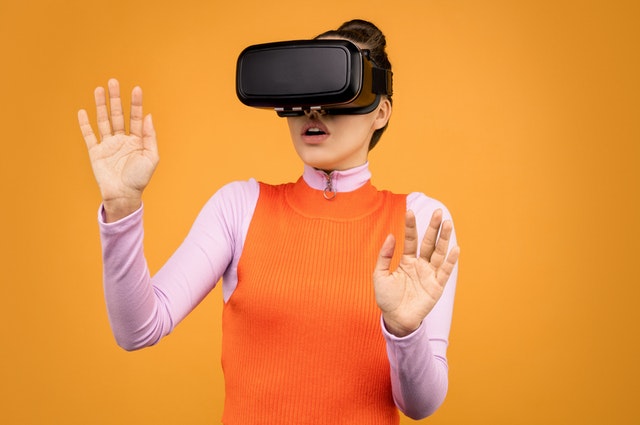Nov, 2020 - By WMR

Virtual reality (VR) has been with us for quite a long time. It has evolved over the years with a variety of changes and additional technologies being introduced. With time, it has only got better with faster processing and a more immersive experience. When we talk about VR, gaming comes across as its primary application. Although it has found its way into numerous fields such as education and the military, it is mainly associated with entertainment. However, doctors and physicians across the world are using VR as a solution to treat mental health problems, which have emerged due to the devastating COVID-19 pandemic.
Since its beginning in the Wuhan province of China, the COVID-19 pandemic has paralyzed the world healthcare infrastructure with medical professionals working tirelessly to save the lives of infected patients. As the disease is so infectious and can be spread easily, the hospitals have been witnessing a massive surge of patients. This not only has resulted in a lack of adequate healthcare infrastructure but also a lack of ample medical professionals. The existing doctors and nurses have to do overtime to serve and treat the patients. Witnessing the gregarious sufferings of COVID-19 patients has taken a toll on the mental health of doctors as well as patients. In such a precarious situation, VR has emerged as the unlikeliest solution for the treatment of mental health problems. Although scientists have been using VR for the treatment of PTSD, severe pain, and also to boost mental health.
VR works by creating a sense of psychological presence. Previously, VR technology was too expensive and unreliable. However, this has changed with key industry players Google and HP investing billions of dollars in the expansion of the VR industry. Currently, doctors are using VR technology to treat patients suffering from mental illnesses. These treatments are provided at their home. For instance, in a program called EaseVR, patients suffering from chronic pain are learning to control their mind and body through VR biofeedback therapy. This is an unusual therapy but seems to be working for patients. As the patient breathes in and out in sync with beating drums, the respirations are detected by a microphone in the headsets, which is used to drive a metaphorical visual narrative. This, in turn, allows users to breathe life into dying trees or make the sky brighten. The evidence shows that this type of therapy is extremely useful in the short-term as well as alleviates anxiety, pain, and depression after the immediate treatment is over.
VR has proven to be quite useful in such cases and it is doing all these by changing the perspective of the world. An individual can imagine being somewhere in a fantastic space and also endure healing. It can help individuals to empathize with themselves and confront their inner selves. This is far more impressive and useful than pills and other forms of therapies. This course of cognitive behavioral therapy can help people suffering from anxiety and depression. VR indeed has emerged as the unlikeliest yet most needed solution to mental health problems in the COVID-19 pandemic and could be used in future operations.

We will be happy to help you find what you need. Please call us or write to us: